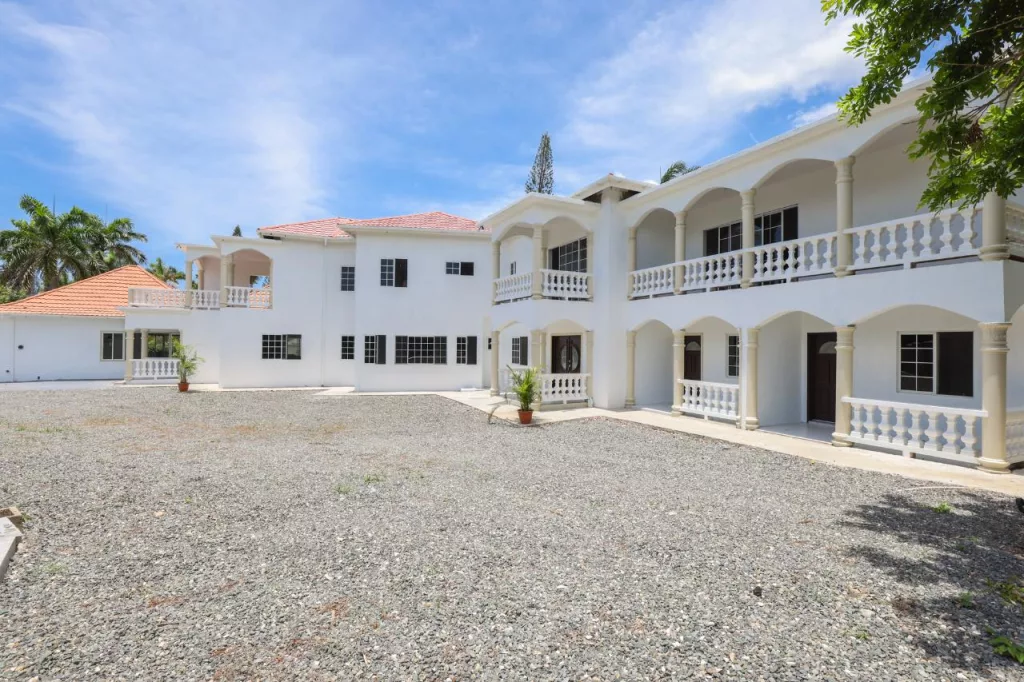So, you’re ready to buy a home. If this were a movie, you’d be driving through neighbourhoods, spotting “For Sale” signs, and walking through open houses while imagining where your furniture would go. But in real life, the process isn’t quite so picture-perfect. Before you can hold the keys to your new home, there are important financial steps to take regarding mortgages in Jamaica, and understanding them upfront will make the journey smoother.
As a real estate agent, I know that buying a home is one of the biggest financial decisions you’ll ever make. My goal is to help you connect your dreams with reality by providing practical, straightforward guidance. Today, we’re starting with the foundation—your mortgage. Welcome to Mortgage 101!
The Down Payment
Your down payment is the first major financial hurdle on your path to homeownership. While your mortgage will cover most of the home’s cost, you’ll need to show your commitment by putting down a portion of the purchase price upfront. In Jamaica, down payments typically range from 10% to 20% of the property’s value, but the exact amount depends on the lender and the property itself.
The best strategy? Start saving early. Even if you haven’t found the right home yet, setting aside funds for your down payment will give you a clear picture of what you can afford. Plus, the more you put down, the lower your monthly mortgage payments will be. Some financial institutions also offer special savings plans designed to help first-time buyers build their down payment over time.
Understanding Your Mortgage
Your down payment is just one piece of the puzzle. The real question is: Can you afford the monthly mortgage payments? Your mortgage includes two key components:
- Principal – This is the total loan amount you’re borrowing, which is the home’s price minus your down payment.
- Interest – This is the cost of borrowing the money, which is determined by your loan’s interest rate and repayment term.
Mortgage terms in Jamaica typically range from 15 to 35 years, and the interest rate can be either fixed or variable. A fixed rate offers stability because your monthly payment remains the same, while a variable rate can fluctuate over time based on market conditions.
To avoid surprises, use a mortgage calculator to estimate your monthly payments and ensure they fit within your budget. Keep in mind that in addition to your mortgage, you’ll also need to budget for home maintenance, property taxes, and insurance.
Making the Offer
Now that you know your budget, it’s time for the exciting part—finding your home. Do you want a modern apartment in the city? A cozy house in the suburbs? A beachfront getaway? Whatever your vision, I can help you find a property that meets your needs and fits within your price range.
Once you’ve found the right home, it’s time to make an offer. I will guide you through this process, helping you negotiate a fair price. It’s also wise to hire a real estate lawyer to review the sales agreement and ensure everything is in order. This step protects you from potential legal issues and ensures a smooth transaction.
Valuation and Surveyor Reports
Before finalizing your purchase, you’ll need a professional assessment of the property’s value and condition. This involves two critical reports:
- Valuation Report – A licensed valuator will assess the property’s market value based on factors such as size, location, age, and structural condition. This ensures you’re paying a fair price.
- Surveyor’s Report – A surveyor will confirm the property’s boundaries and check for any breaches or encroachments that could cause legal issues later.
Think of these reports as a home’s health check-up. Just as you wouldn’t buy a car without inspecting the engine, you shouldn’t buy a house without verifying its condition. If there are any red flags—such as structural issues or missing land title requirements—you’ll want to know before signing the final paperwork.
Homeowners’ Insurance
Your home is likely the biggest investment you’ll ever make, so protecting it is essential. In Jamaica, homeowner’s insurance is a requirement for most mortgages, but even if it weren’t, it’s a wise choice.
With the risk of hurricanes, floods, and fires, insurance gives you peace of mind knowing that your investment is secure. Policies typically cover structural damage and, in some cases, personal belongings. However, coverage varies, so be sure to choose a policy that aligns with your home’s value and potential risks. If you make upgrades or expansions, update your insurance to reflect the increased value.
Many mortgage lenders offer insurance options or can recommend trusted providers, so don’t hesitate to ask your lender for guidance.
Don’t Forget the Fees
Beyond the home’s price and your mortgage, there are additional costs that buyers often overlook—closing fees. These fees can add up to 10-15% of the loan amount, so it’s important to factor them into your budget. Some of the most common fees include:
- Stamp Duty – A government tax on property transactions.
- Legal Fees – Lawyers typically charge 2-6% of the land value, plus 16.5% GCT.
- Valuation and Surveyor Fees – These cover the cost of the property assessments.
- Mortgage Application Fee – Usually around 2% of the loan amount.
Before making an offer, ask your mortgage provider for an estimate of your total closing costs. This will help you avoid last-minute surprises and ensure a smoother home-buying process.
Final Thoughts
Buying a home is an exciting journey, but it requires careful planning and financial awareness. From saving for your down payment to securing insurance, each step plays a crucial role in making your dream a reality. While this guide covers the basics, there’s still more to learn. However, keeping these things in mind will make the process a lot easier for you to navigate.
Ready to take the next step? Contact me today and I will connect you with my preferred mortgage agencies.

